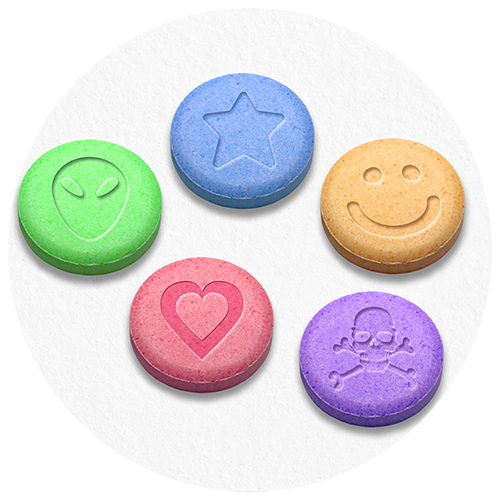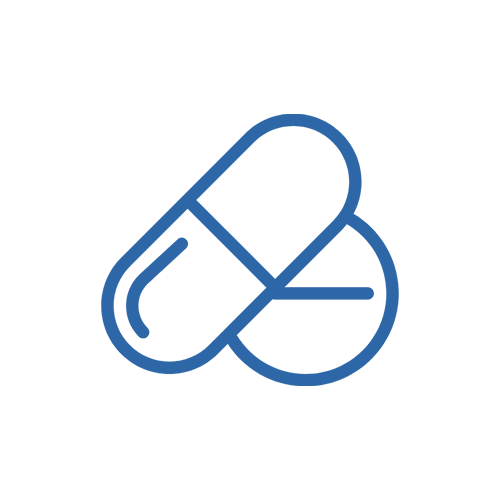What are the effects that are sought after?
In a recreational context, the effects that are sought after are mainly:
- Feelings of well-being
- Euphoria
- Hallucinations, change in sensory perceptions
- Increased empathy
- Increased energy
- Wanting to socialize
- Wanting to physically touch others
Because of these effects, MDMA is often used during party-type environments where the senses are already on alert (loud music, bid crowds, dancing…).
Side effects and other risks
Like all psychoactive substances, MDMA has its own side effects which can be quickly felt, such as:
- Dehydration
- Sweating
- Heart rate acceleration
- Contraction of the jaw muscles
- Nausea
MDMA can also cause serotonin syndrome1. Serotonin syndrome is caused by too much serotonin in the cerebral system which causes a combination of symptoms: spasms or muscular rigidity, confusion or delusions, heart rate acceleration, increase in body temperature, agitation, anxiety…
If it is sniffed, MDMA can also increase the risk of infections, nasal problems (bleeding, nasal wall perforation…) and even respiratory or pulmonary problems.
Other side effects generally show up when the wanted effects fade. The most common are:
- Anxiety
- Depression, including a risk for suicide
- Confusion
- Fatigue
- Trouble concentrating
- Paranoia
- Hallucinations
The effects that are felt, whether they are wanted or unwanted, depend on various factors, such as the quantity used, the way it was used, tolerance (see below), the physical and psychological state of the person, the environment, etc.


